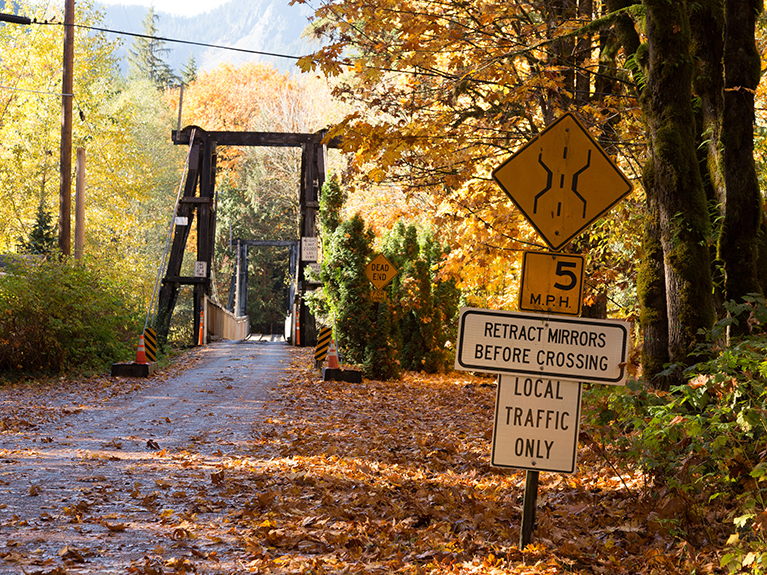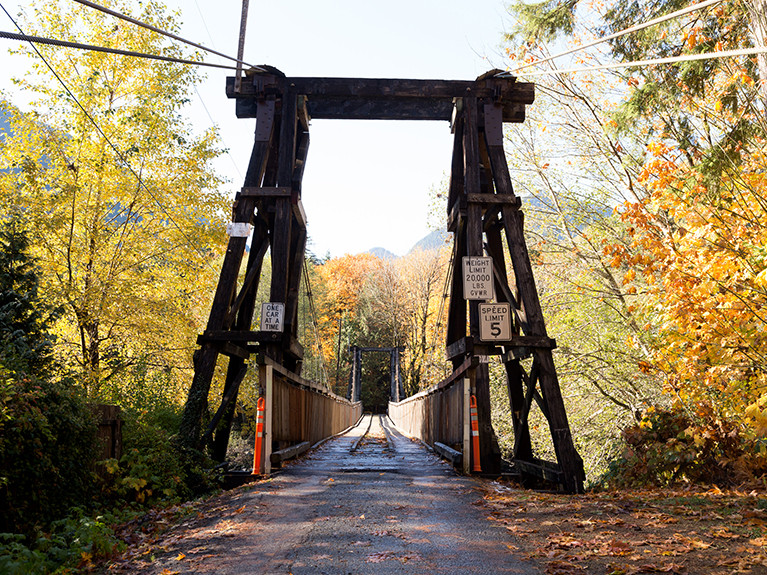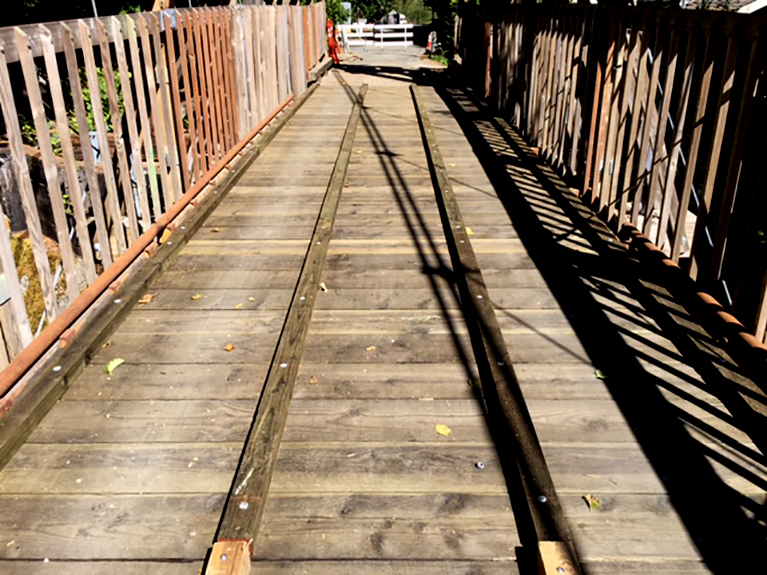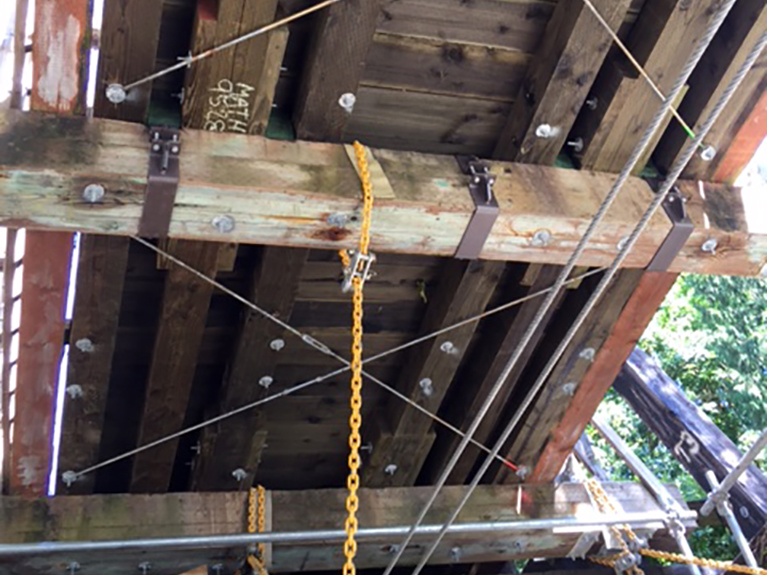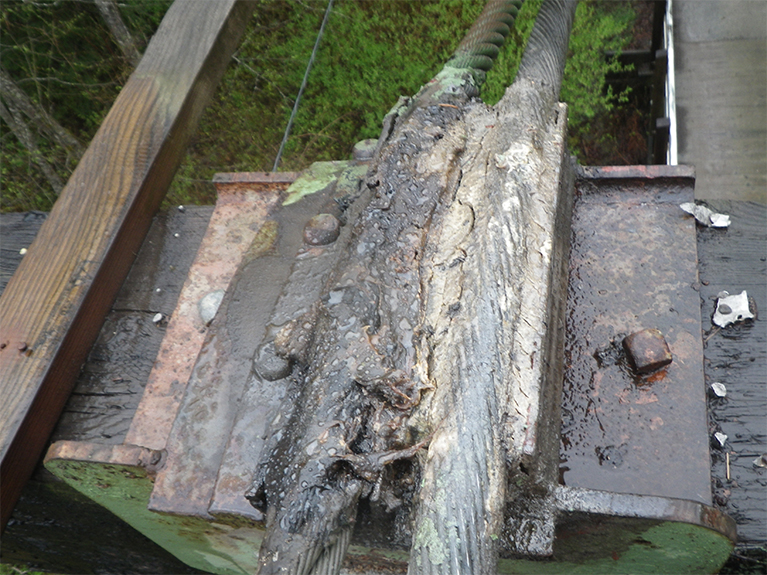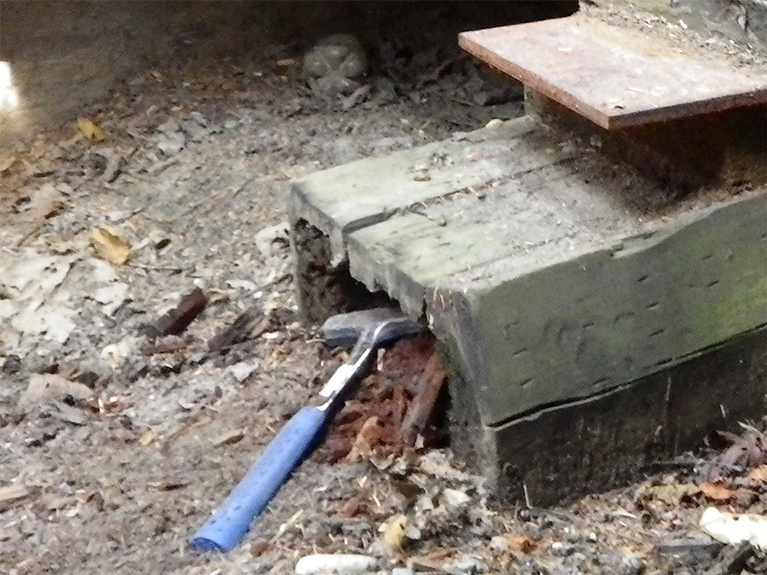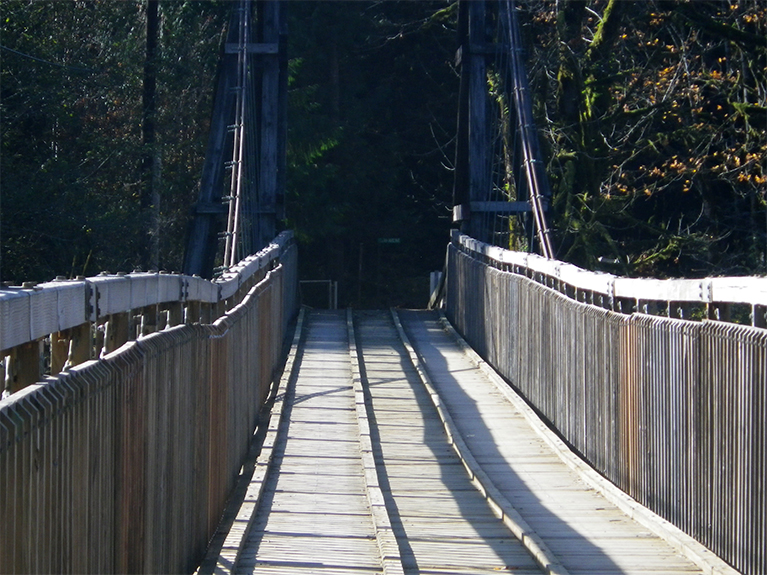A temporary bridge is expected to be installed in spring 2026

Baring Bridge over the South Fork Skykomish River.
Status update
February 26, 2026
On Saturday, February 28, 2026 flaggers will direct alternating traffic across Baring Bridge #509A from 8 am to 3 pm while crews make repairs to the bridge. Please expect delays of up to 30 minutes. Emergency vehicles will have access through the work zone. The most up-to-date information will be on MyCommute.
King County will hold a community meeting to talk about the temporary bridge installation on Saturday, March 28, 2026, at 1 pm at the King County Fire District #50, Station #296 located at 64410 Index Creek Road, Baring, Washington 98224.
King County is working quickly to restore safe access and important services for people living in Baring, WA after storms and flooding in December damaged roads and bridges throughout Western Washington. To help right away, the Department of Local Services’ Road Services team and the County’s Finance and Business Operations Division fast-tracked a construction contract to build a temporary bridge. This bridge will be located just downstream from the historic Baring Bridge over the South Fork Skykomish River. The river crossing is the only way to reach about 170 homes.
The Baring Bridge was badly damaged during the storm. Road Services crews cleared logs and made small repairs after several trees hit the bridge, but now only vehicles under 5 tons (10,000 pounds) can use it. This limits access for residents, emergency crews, utility workers, and deliveries of things like propane and septic supplies. The new temporary bridge will let heavier vehicles reach the community.
If you have a load over 5 tons, please notify Road Services. Our bridge engineers will review and decide if the use is permissible. Please visit the Bridge load limits and permits in Unincorporated King County website for more information. Overweight vehicles must be reviewed and approved prior to use.
The temporary bridge is expected to be installed in spring 2026. The project will cost about $3.5 million and will be built by Johansen Construction Company of Sumner, WA. King County is also planning a permanent replacement for the historic Baring Bridge which is expected to begin in 2029.
The community can stay informed about this project by visiting this website, subscribing to Road Alerts in the Skykomish Area and using the MyCommute Map.
Project overview
The Baring Bridge provides sole access to approximately 170 properties, including more than 40 residences, in the unincorporated community of Baring, WA. Much of the bridge has been repaired or retrofitted over the years, however it continues to decay and must be replaced. King County will replace the existing timber bridge with a wider, steel truss bridge. The new bridge will be open to all vehicles and carry no weight restrictions. Construction for the permanent replacement is anticipated to begin in 2029 and last through 2031.
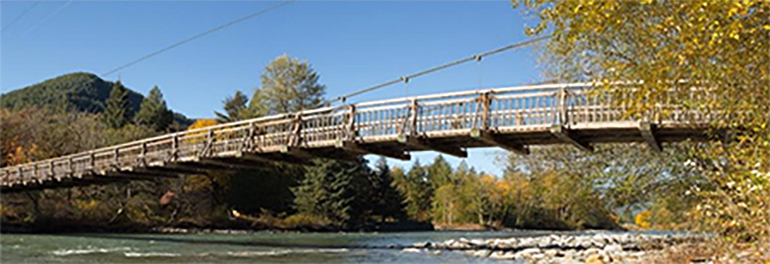
The current bridge was built in 1930. In 1999, it was designated a Landmark by King County and in August 2019, the bridge was listed on the National Register of Historic Places.
Permanent replacement bridge design
The new permanent Baring Bridge will be a steel truss bridge. It will be built in the same location as the existing bridge. The new bridge will be open to all sizes and types of vehicles. It will have one single lane and wide shoulders for pedestrians.

- Reusing the main steel cables of the existing bridge as a decorative element on the bridge railing.
- Painting the steel truss “National Park Service Brown,” so that it blends in with the scenery.
- Incorporating weathered steel railings on the bridge and approach to better fit the rural character of the setting.
- Weathering the steel railings on the new bridge and the bridge approaches to help make the new bridge appear older than it is.
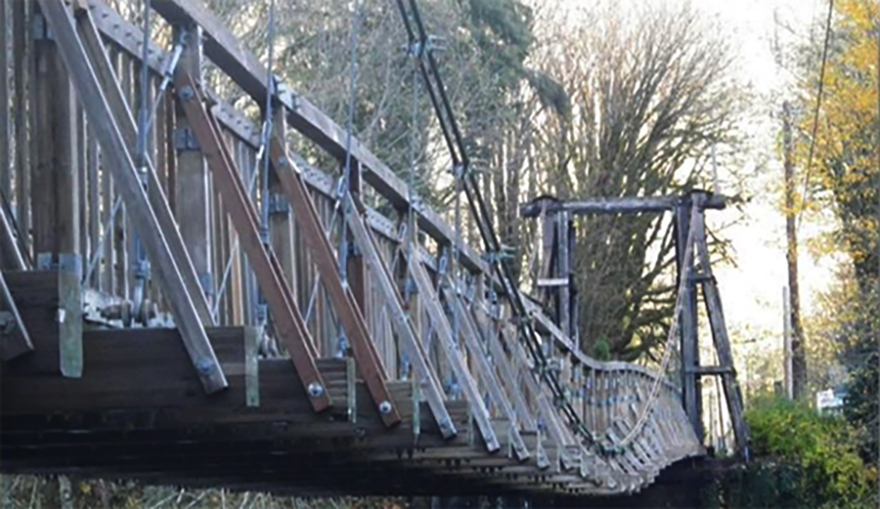
The weight restriction on the existing Baring bridge (above) is 5 tons (10,000 pounds). The steel truss replacement bridge will not have a vehicle weight restriction.
What to expect during construction
Construction for the permanent structure is currently planned to start in spring 2029 and end in fall 2031. In the spring of 2026, King County expects to install a temporary one-lane bridge adjacent to and downstream of the existing bridge. The temporary bridge will carry traffic over the South Fork Skykomish River until construction can begin and while the permanent bridge is under construction.
Community involvement
A public meeting about the project is anticipated to be held in 2026 prior to the installation of the temporary bridge.
Public engagement with community members about the replacement Baring Bridge project began in January 2019. Since then, we have held several community meetings, presentations and workshops. We've used input from residents, visitors, local businesses, county representatives, state and national agencies to help design the replacement bridge. The project team will continue to work with the public and partner agencies until the new bridge is officially complete. A detailed listing of our public engagement materials, activities and presentations is available in the public outreach and documents section of this website. Community members are welcome to contact us directly for more information or to schedule a meeting.
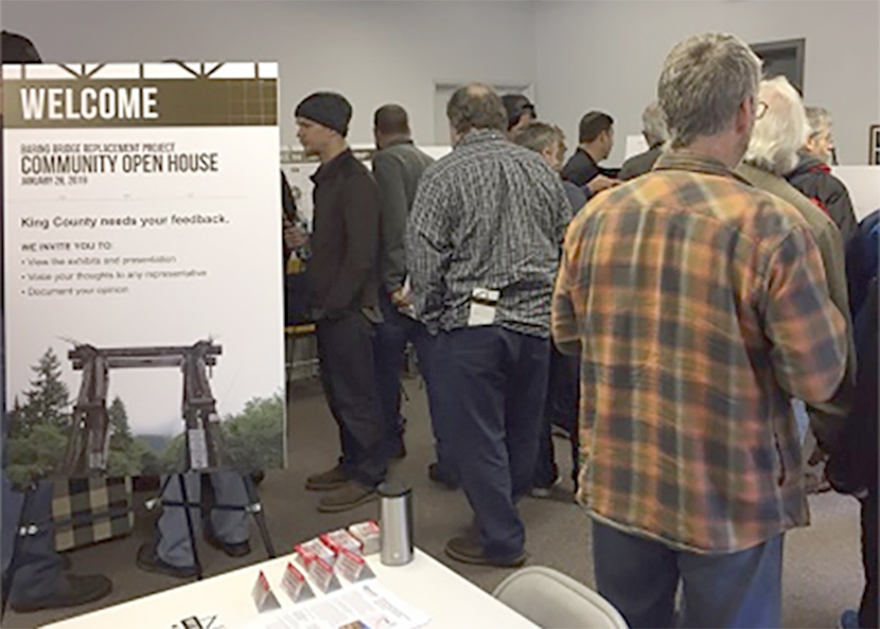
Road Services held the first Baring Bridge Replacement Project open house in January 2019. The open house was held in the King County Fire District 50 station near the Baring Bridge.
Project documents
Project documents are added to this website for public view. Please read below to see the:
- State Environmental Policy Act (SEPA) Categorical Exemption (358KB), May 20, 2025
- The King County Landmarks Commission approved a Type III Certificate of Appropriateness for the Baring Bridge (192KB), March 4, 2025
- Baring Bridge Type, Size, and Location (TS&L) study (24MB), July 30, 2019
- King County Landmarks Commission Baring Bridge Briefing (4MB), October 22, 2020
- King County Landmarks Commission Baring Bridge Briefing (4MB), February 28, 2019
Frequently asked questions about the selected preferred alternative
Federal and state laws require mitigation for the removal and replacement of the bridge. Mitigation is a list of agreed-upon actions or commitments designed to help compensate for possible environmental impacts caused by the removal and replacement of the bridge. In this case, the U.S Army Corps of Engineers is responsible for determining the proposed mitigation plan. Next, the Corps works with the Washington State Department of Archaeology and Historic Preservation to make sure both agencies agree on the proposed mitigation plan. Once the agreement is finalized, the Corps will publish a document called the Memorandum of Agreement. This Memorandum is necessary to allow the county to remove the historic Baring bridge.
We intend to advertise the project to potential contractors in winter 2028. Construction is expected to start in spring/summer 2029 and end in spring 2031.
Photos

December 2025: The Baring Bridge was badly damaged during the storm. Road Services crews cleared logs and made small repairs after several trees hit the bridge.

December 2025: Road Services crews worked quickly to clear fallen logs and make temporary repairs after several trees struck the bridge.
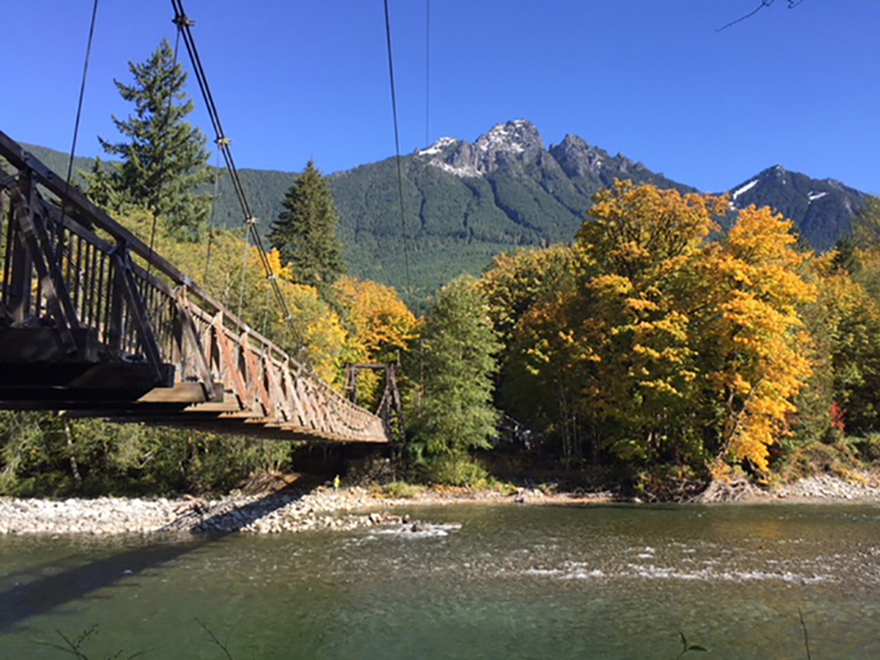
Baring Bridge over the South Fork Skykomish River.
 Translate
Translate

